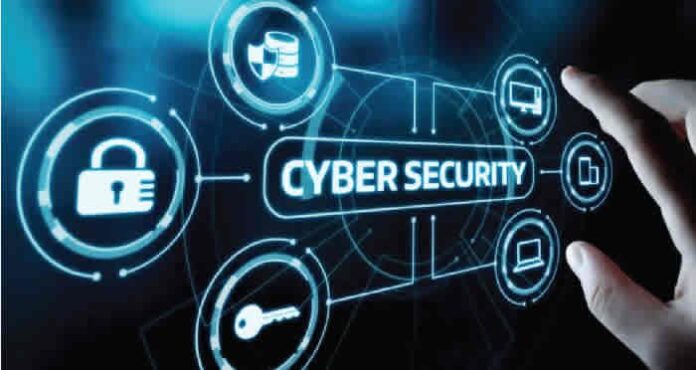Still on Cybersecurity and National Interest
By Winnie N. Chidiebube
The recent withdrawal of the cybersecurity levy directive by the Central Bank of Nigeria (CBN) is a significant development. This directive, which mandated banks and other financial institutions to charge a cybersecurity levy on electronic transactions, was a potential revenue source for the Office of the National Security Adviser’s cybercrime combat plan. Its withdrawal has relieved citizens of an additional financial burden.
The cybersecurity levy, a negligible expense on all bank transactions, was expected to generate a significant revenue stream to support the Office of the National Security Adviser’s plan to combat cybercrime. However, the directive sparked a nationwide outcry from dissatisfied citizens who complained that banking transactions were becoming increasingly costly and adding to their financial burden and hardship due to these changes.
Senator Shehu Umar Buba, the Senate Committee Chairman on National Security and Intelligence, played a crucial role in clarifying the target of the cybersecurity levy. In an interview with Economic Confidential, he explained that the levy was not aimed at individuals but at financial institutions and telecommunication companies. His clarification helps to dispel any misconceptions about the levy’s purpose and its impact on these sectors.
He highlighted the importance of a secure and trustworthy electronic transaction environment to promote economic growth and digital financial inclusion. He said it would also enhance national security, strengthen cybersecurity, protect critical infrastructure and sensitive information, and align Nigeria with international best practices.
As one of the vibrant legislators in the upper chamber, Senator Buba had previously made valid cases on issues of national importance since the emergency of current federal legislators. For instance, immediately after the inauguration of the National Assembly last year, he was behind a unanimously supported motion by the Senate asking the Presidency to use the already appropriated N14.2 billion in the 2023 budget to construct the Nigerian Customs Academy and Training School in Bauchi.
Similarly, early in the year, while addressing concerns regarding the alleged abandonment of the Kolmani Oil well at the Bauchi-Gombe States boundary, the Senator assured that activities at the sites would resume in earnest, emphasising the complexity of the oil exploration project.
That was after he initiated discussions with critical stakeholders, including NNPC’s Group Managing Director Mele Kyari and National Security Adviser Malam Nuhu Ribadu, over the project.
Despite Senator Buba’s and others’ clarifications, there are lingering concerns among the public. Many fear that the withdrawal of the cybersecurity levy could lead to indirect consequences, such as increased levies on bank transactions and tariffs by telecommunication companies. These concerns must be addressed to ensure a comprehensive understanding of the issue.
Read Also:
It is necessary to point out that cybersecurity measures are essential in curtailing the excesses of online fraudsters. It is being widely reported that cybercriminals are on the prowl in their attempt to gain unauthorised access to a bank account through scams, malware attacks, and hacking. Cybersecurity measures such as firewalls, intrusion detection systems, and access control help prevent unauthorised access and protect sensitive information.
Strong cybersecurity is essential in an increasingly digital world. Its benefits include preventing Unauthorized Access to Bank Accounts, protecting against Fraud and Identity Theft, and protecting Customer Data.
Considering its adverse impacts on low-income households, ordinary citizens’ concerns about the levy can be justified. One of the main worries is the potential influence on low-income households. Many Nigerians believe the fee will unjustly damage low-income individuals and families that use frequent transactions to meet their fundamental needs.
The levy, according to the would add to the other charges that are being imposed on them by the CBN like ATM card maintenance fee, Stamp duty, Account maintenance levy, Value Added Tax on transfers, Interbank transfer commission, electronic money transfer levy, etc., all this could be a heavy burden for the ordinary Nigerian which could discourage people from using electronic banking.
Professor of Economics Ndubisi Nwokoma stated that the new levy and the recently reinstated processing fees on large deposits were ill-mannered; in his words, “People are suffering, looking for what to eat, and you’re adding more burdens. I understand they are trying to raise money, but the people you are raising money from don’t have any real income to sustain them. People are being driven out of the banking system” he further stated that by making it difficult for the citizens, they would be forced to go back to cash transactions as the problem created is much more than the money being raised.
Small business owners expressed concerns about how the fee might affect their day-to-day operations. Electronic payments are a common way for small businesses to handle consumer transactions and control their cash flow.
The charge can raise operational expenses, and few plan to opt out of electronic banking. Bread seller Abubakar Sheka says he has already decided to avoid electronic banking transactions by the time the levy starts on 20 May.
“There is no way I will agree to be given 0.5 per cent on my transfers when I earn very little. Many people don’t buy bread now, and business is fragile. Why will this government further make us cry with this despite what we are already going through with the high cost of food and fuel?”
Experts like Professor Ndubisi Nwokoma argue that the levy and other recent fees could drive people out of the banking system and back to cash transactions. The proposed cybersecurity levy may seem unfair, but cybersecurity is crucial in banking, telecommunication, and other sectors to prevent attacks and protect sensitive information. The government, especially lawmakers, should reconsider the Cybersecurity levy and ensure that it is in tune with reality on the ground by not taxing the poor but the wealthy institutions.
While the government is expected to reintroduce the Cyber Security Levy, considering its advantages in enhancing the security framework of financial operations in the country, it should do that with a human face and adequate awareness campaign on the national interest and security potential.
Winnie Nwosuocha Chidiebube, a student in the Mass Communication Department at the University of Nigeria Nsukka, is interning at PRNigeria Centre Abuja.



















